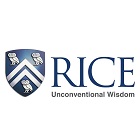- News and articles
- Find usIDP AustraliaIDP BahrainIDP BangladeshIDP CambodiaIDP CanadaIDP ChinaIDP EgyptIDP GhanaIDP Hong KongIDP IndiaIDP IndonesiaIDP IranIDP JordanIDP KenyaIDP KoreaIDP KuwaitIDP LebanonIDP MalaysiaIDP MauritiusIDP Middle EastIDP NepalIDP New ZealandIDP NigeriaIDP OmanIDP PakistanIDP PhilippinesIDP Saudi ArabiaIDP SingaporeIDP Sri LankaIDP Taiwan, ChinaIDP ThailandIDP TurkeyIDP UAEIDP VietnamIDP Corporate
- Social
- 한국어
- Where we operate
- Courses
- Scholarships
- IELTS
- About IDP
- Arrival services
- News and articles
- Find us
- Find us
- Find nearest IDP offices
- IDP Australia
- IDP Bahrain
- IDP Bangladesh
- IDP Cambodia
- IDP Canada
- IDP China
- IDP Egypt
- IDP Ghana
- IDP Hong Kong
- IDP India
- IDP Indonesia
- IDP Iran
- IDP Jordan
- IDP Kenya
- IDP Korea
- IDP Kuwait
- IDP Lebanon
- IDP Malaysia
- IDP Mauritius
- IDP Middle East
- IDP Nepal
- IDP New Zealand
- IDP Nigeria
- IDP Oman
- IDP Pakistan
- IDP Philippines
- IDP Saudi Arabia
- IDP Singapore
- IDP Sri Lanka
- IDP Taiwan, China
- IDP Thailand
- IDP Turkey
- IDP UAE
- IDP Vietnam
- IDP Corporate
- Social
- 언어 변경
- IDP Education /
- 컬리지와 종합대학 /
- United States /
- Rice University /
- Master of Arts in Religion

Master of Arts in Religion
At RICE UNIVERSITY
Location
United States
자격
Masters Degree
금액
USD57210
(2025)
지속 기간
3 Semester(s)
다음 입학시기
17 August 2025
입학 조건
7.0
IELTSCOURSE_INFO
- 장학금
- 인턴쉽
수업료에 관한 내용은 참고용으로만 사용해주세요 정확한 비용을 알기 위해
Duration: 3 Semester(s)
Fees: USD57210
| 학기 | Location |
|---|---|
| Fall (August), 2025 | Houston |
입학 요건 Rice University
IELTS Indicator. A minimum score of 7 is required. TOEFL, at least 600 on the paper-based TOEFL or score 250 on the computer-based TOEFL.
신청 마감일
지원 마감일이 없습니다. IDP 유학전문 카운셀러에게 문의하기 더 자세한 정보를 위해
Further information
If you aren't eligible for the above entry requirements, you might ant to explore pathway options at Rice University. If you want to find out more, speak to our counsellors.
추천
- 석사
- United States
- 펀딩 타입: Fee waiver/discount
- 석사
- United States
- 펀딩 타입: Fee waiver/discount
- 석사
- United States
- 펀딩 타입: Fee waiver/discount
- 석사
- United States
- 펀딩 타입: Other Discount
At Middlebury Institute of International Studies at Monterey
- 석사
- United States
- 펀딩 타입: Other Discount
- 석사
- United States
- 펀딩 타입: Other Discount
- 석사
- United States
- 펀딩 타입: Other Discount
- 석사
- United States
- 펀딩 타입: Other Discount
Your action plan
절차 1
Shortlist your courses
Choose the best three courses you’re most likely to pursue.
절차 2
Check your eligibility
Get an instant in-principle offer for courses with the IDP FastLane tag.
절차 3
Apply through IDP Live
Fill out the form once and use it to apply to multiple courses.
IDP의 Fastlane은 어떻게 진행되나요?
FastLane의 사전입학심사 서비스를 이용하면 몇 분 안에 합격 가능여부를 알 수 있습니다!
학교와 전공 선택하기
지원을 위한 계정 만들기
사전심사서비스를 위한 지원서 제출
선택하신 학교에서 몇 분 내로 사전심사 결과를 보내드립니다
전문 카운셀러와 함께 지원준비하기




